The 7 Stages of Trauma Bonding Here's Why You Can't Leave
A trauma bond is a strong, emotional attachment that develops between a survivor of prolonged abuse and the perpetrator of abuse. It can be hard to break a trauma bond due to the intensity of the attachment, but there are multiple ways to heal and move on from a trauma-bonded relationship. Therapy can help you recover from trauma.
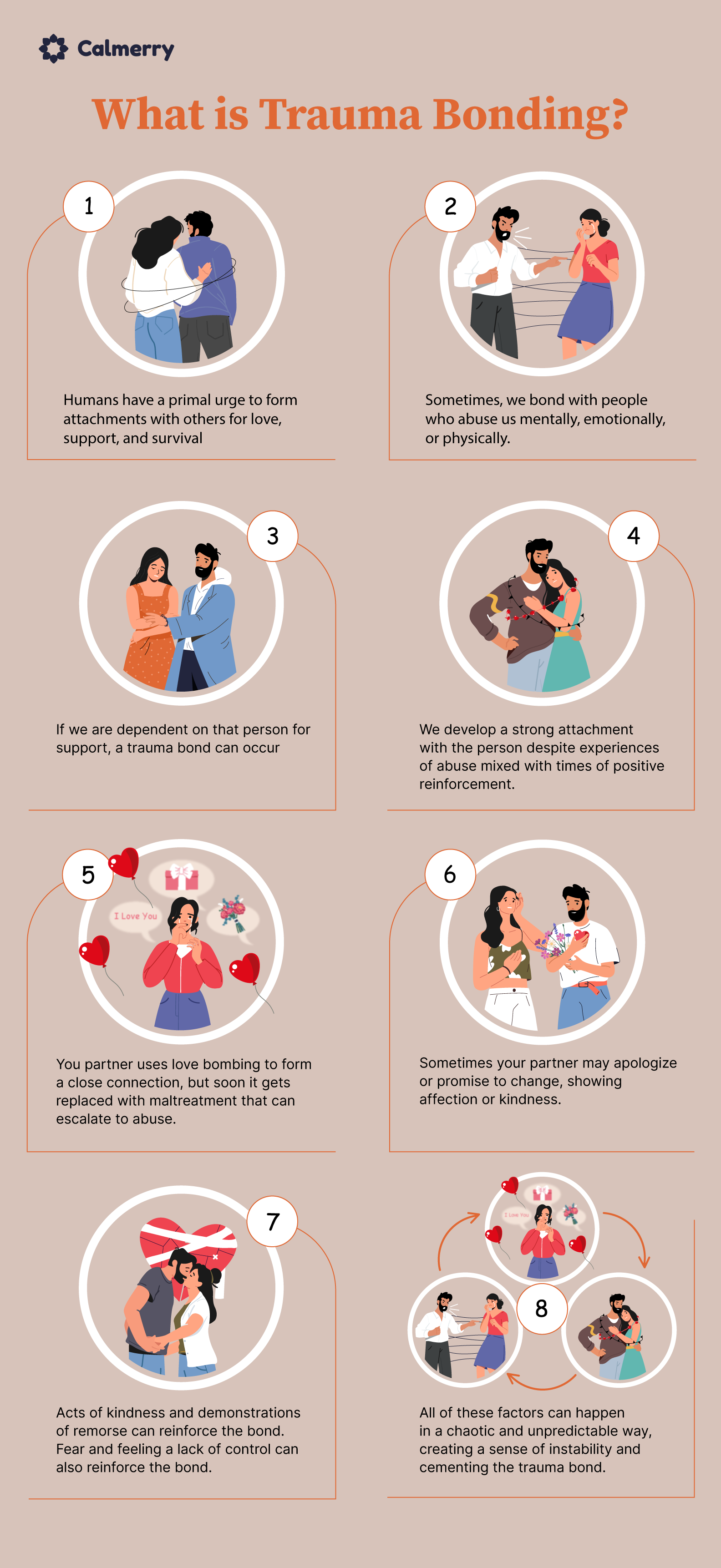
How to Recognize and Cope with a Trauma Bond
Trauma Bond Withdrawal Symptoms reported by survivors of abusive relationships involving trauma bonds include acute anxiety, depression, emotional numbness, longing for the abuser, disturbances in sleep and appetite, racing thoughts, flashbacks of abuse, guilt, and a sense of emptiness or meaninglessness.

Trauma Bond Understanding, Recognizing, and Recovering From It
Trauma bonds have a way of slowly eating away at your sense of self, leaving you feeling completely lost and unsure as to what to do next.. and stay removed as much as possible to "detox" yourself emotionally from that person and cope with any trauma bond withdrawal symptoms. Professional support can be extremely helpful in gaining a.

Recognizing & Dealing With Trauma Bonding Withdrawal Symptoms Navigating Religious Narcissism
Breaking free from a trauma bond can result in withdrawal symptoms such as depression, anxiety, and guilt. Recognizing these symptoms is vital for reclaiming your life and finding healthier connections in the future. Understanding Trauma Bonding

How to Break the Trauma Bond
Depression: After escaping the abuser, people typically feel depressed and hopeless. They may struggle with loss and emptiness. Attachment issues: Trauma ties can alter healthy attachment patterns.

Trauma Bonding Explained in 4 minutes (Anxious vs Avoidant Attachment Styles) YouTube
Breaking a trauma bond comes with intense withdrawal symptoms, flashbacks, cravings for the toxic person, compulsive thoughts about what happened, and an anxious state that may make you feel like you are going backward, without abate.

Trauma Bonding Explained Why Abuse Feels Like Love
Some common signs of trauma bond withdrawal include: 1. Emotional Turmoil Individuals experiencing trauma bond withdrawal may undergo intense emotional turmoil. They might struggle to make sense of their feelings, vacillating between love and hate for their abuser. This emotional rollercoaster often leads to confusion and self-doubt. 2.
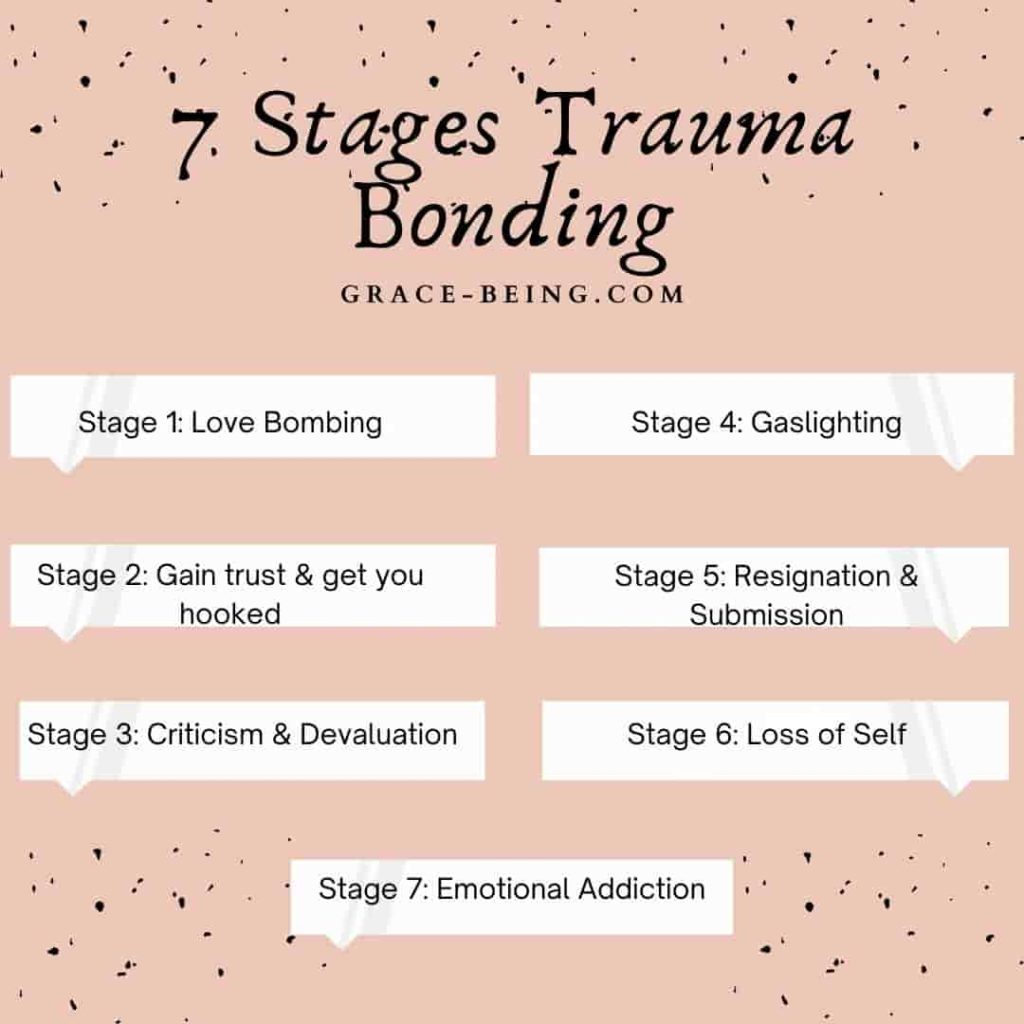
7 Stages Of Trauma Bonding
- Jump to a section - What Is Trauma Bonding? How Trauma Effects the Mind and Body What Does It Mean To Be Trauma Bonded To Someone? A trauma bond is an attachment that develops from a cycle of physical and/or emotional trauma followed by positive reinforcement.
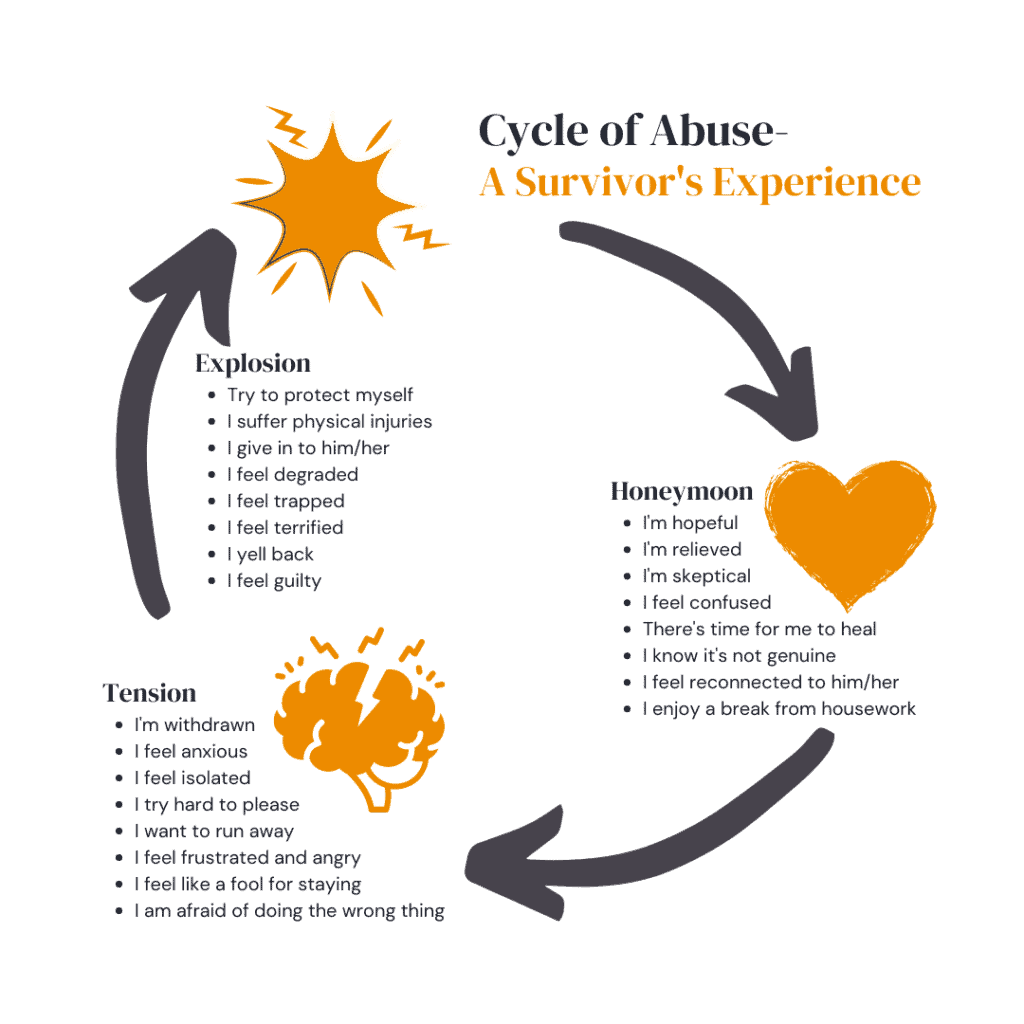
Warning Signs Of Trauma Bonding What Is Trauma Bonding And How To Cope
How to Get Help Trauma bonding is an unhealthy emotional attachment to someone who causes you physical, emotional, and/or sexual harm. In such relationships, the abusive partner can fluctuate between extreme affection and extreme abuse in repeated cycles.

Trauma Bonding Definition, Causes, Signs, Situations, and How to Break
A trauma bond is when a person forms a deep emotional attachment with someone that causes them harm. It often develops from a repeated cycle of abuse and positive reinforcement. When this occurs.

Trauma Bonding What Is It & How To Cope With It?
Trauma bond withdrawal often involves experiencing intense emotions, sometimes swinging rapidly between joy, relief, anger, sadness, guilt, and anxiety. These emotional fluctuations can be overwhelming and may leave individuals feeling emotionally drained and confused. 2. Obsessive Thoughts
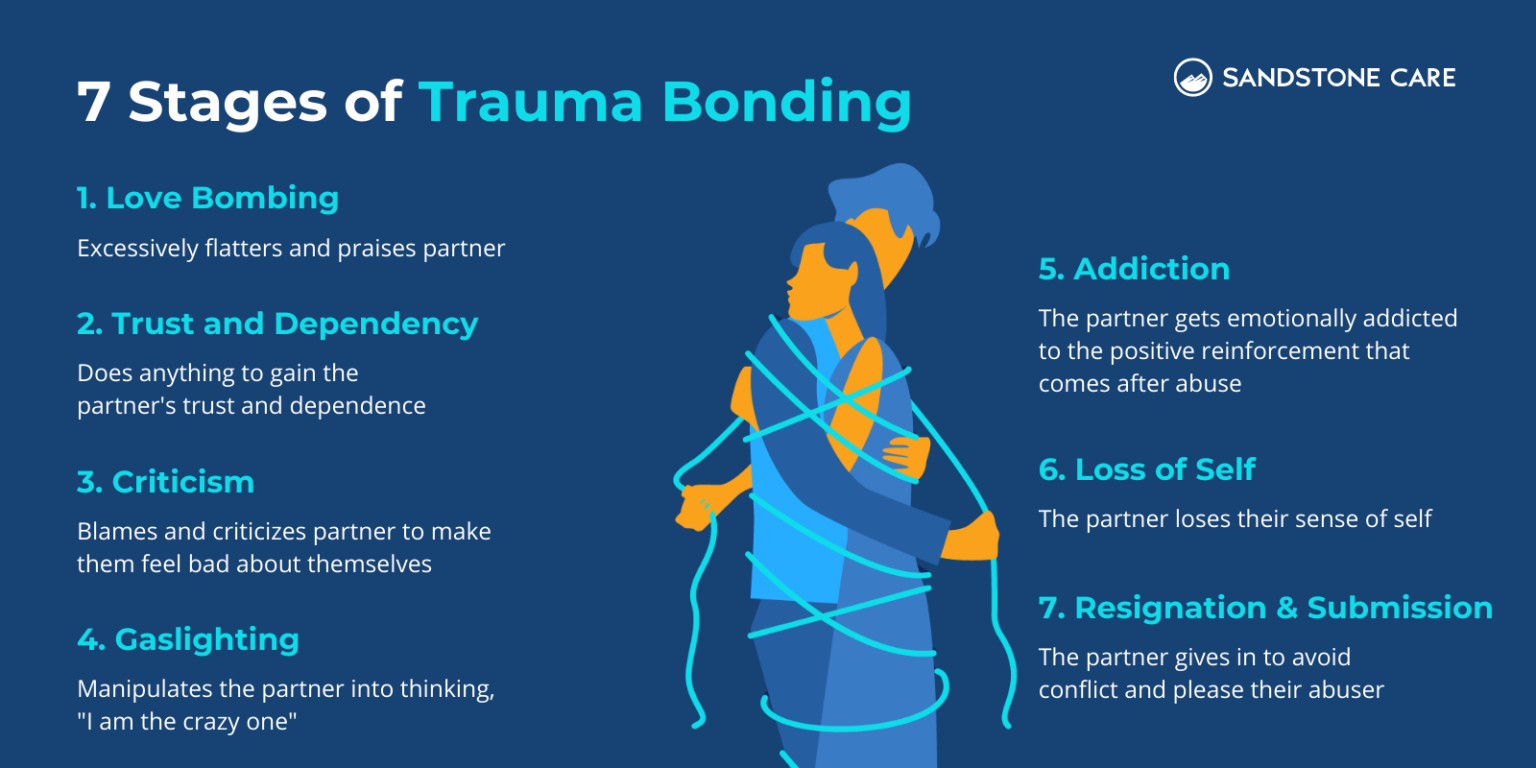
Trauma Bonding Definition, Stages, & Recovery Sandstone Care
Trauma Bonding Withdrawal Symptoms: Anxiety After walking on eggshells for a period of time (the longer, the worse effect), trauma bonding victims will feel many things. They will feel a sense of dread that they can't quite pinpoint the cause of. Or they will feel nervous and restless over things that they can articulate as well as unknown causes.
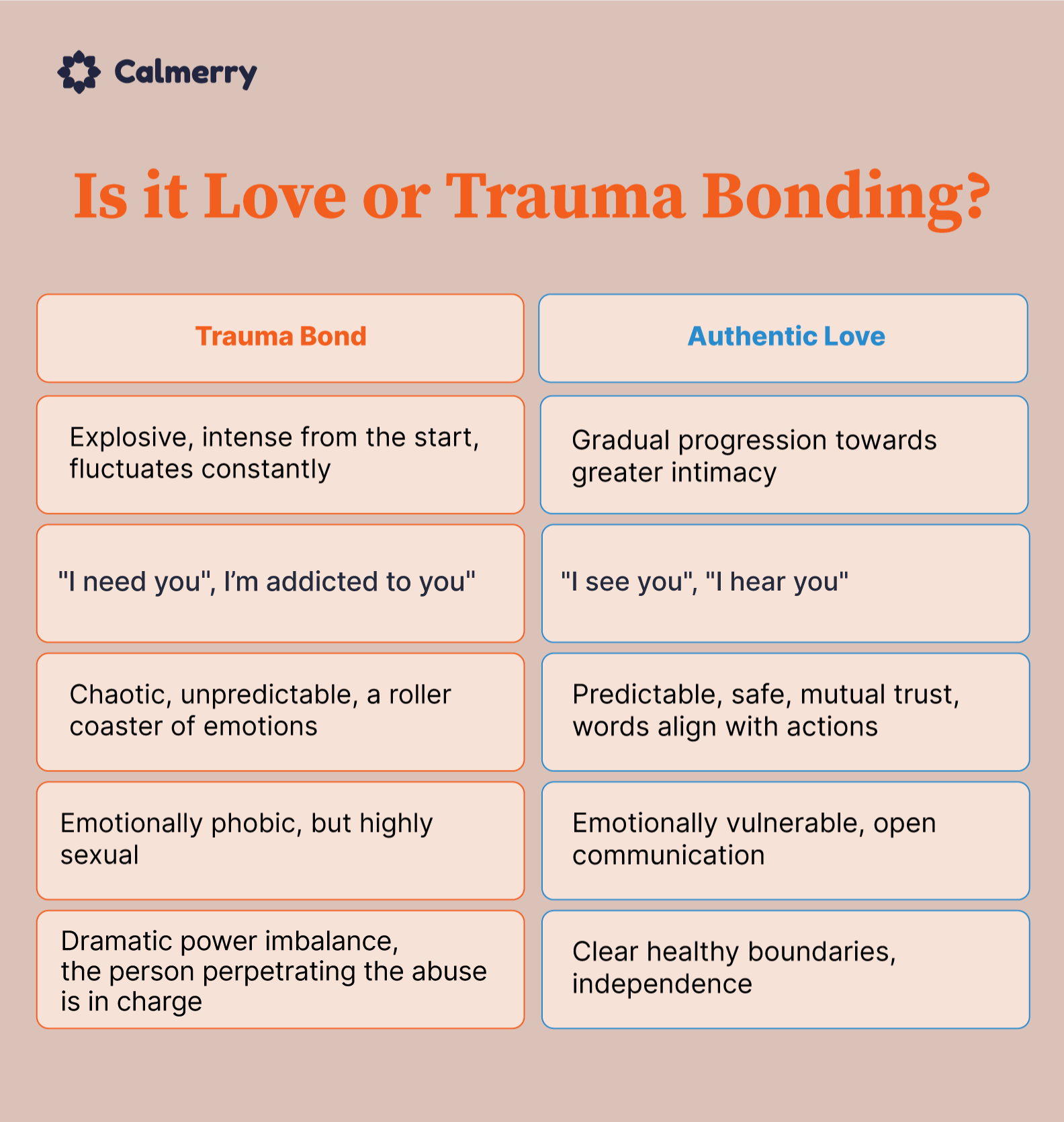
How to Recognize and Cope with a Trauma Bond
Definition When does it happen? Signs Breaking the bond Recovery When to seek help Summary Trauma bonding is a psychological response to abuse. The person experiencing abuse may develop.
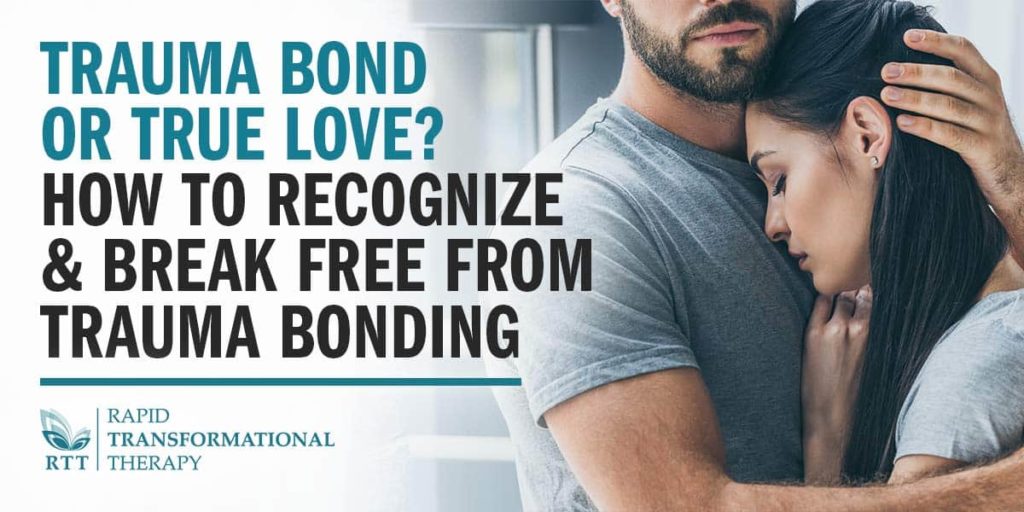
Trauma Bonding How to Break Free RTT® Blog
Why trauma bond withdrawal symptoms can be so intense. Trauma bond withdrawal symptoms can feel overwhelmingly intense because they stem from a connection that was more about power and control than affection. In a trauma bond, the cycle of abuse and intermittent positive reinforcement creates a powerful emotional attachment. Your brain gets.
The 7 Stages of Trauma Bonding Here's Why You Can't Leave
Here are a few of the trauma bond withdrawal symptoms you may experience: Powerful Cravings: You may experience overwhelming cravings to reconnect with your Ex, seeking the "highs" of affection you once received. Even if you don't get back together, you may feel the need to stay friends with your Ex, continue engaging in fights with them.

Warning Signs Of Trauma Bonding What Is Trauma Bonding And How To Cope
Justification of an abuser's actions. Another major sign of trauma bonding is justifying an abuser's actions. If you're experiencing abuse, this can be a way to self-soothe and reconcile.